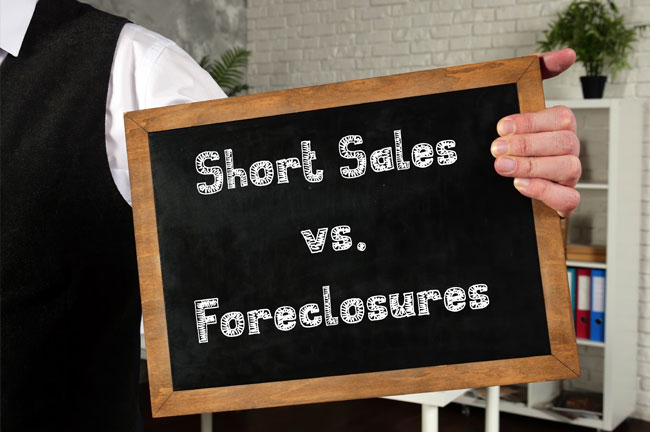In an increasingly unstable housing market, many homeowners are faced with a tough decision: whether to sell their home for less than what they owe on it or risk foreclosure.
There are two options that you can pursue when choosing between these two courses of action: short sale and foreclosure.
Knowing the difference between a short sale and a foreclosure is important so you can make an informed decision about which process is best for your financial situation.
What Is A Short-Sale?
A short sale is a sale of property in which the proceeds from the sale do not cover all liens and other encumbrances.
A short sale, also known as a “short payoff” is when you sell your house for less than what you owe on your mortgage
In order for a short sale to work, your bank must agree to accept an amount that is less than what you owe on your mortgage loan as payment in full or “short” of what you need.
Short sales occur when a homeowner owes more on their mortgage loan than what the property is currently worth.
For example, if you purchased your house for $500,000 and it has dropped in value to $400,000 then this could be an opportunity for a short sale since the proceeds from selling will not cover all of what you owe on your mortgage.
What Is Foreclosure?
A foreclosure occurs when you default (fail to make payments) on your home loan and the lender files a claim in court to legally take possession of the property for nonpayment
When this happens, it’s called “foreclosure.”
Foreclosures can be a lengthy process and often require the participation of a lawyer.
In the case of a foreclosure, you will lose property ownership completely and be required to vacate the home.
Short Sale vs. Foreclosure: Differences to Note
When trying to decide between the best options for your situation, take stock of the differences. The main difference between a short sale and foreclosure is that, in a short sale, the homeowner still retains control over the sale of the property.
In contrast, in a foreclosure, the lender takes possession of the property due to nonpayment and then sells the property.
Another key difference is that foreclosures are often a lengthy legal process, while short sales are usually completed much faster.
Foreclosures can be a lengthy process and often require the participation of a lawyer, while short sales are typically completed with minimal legal documentation.
However either way it can be an emotional time for all involved but one thing remains certain: if this happens to you or someone close to you, it is important to get as much information as possible.
An Experienced Attorney Can Help Guide You
If you’re looking for experienced representation when facing foreclosure or short sale, consider contacting our attorneys here at Levitt and Slafkes.
We have the experience and dedication to help you get the best results possible in these difficult situations.
Contact us today online or call us at 973-323-2953 to discuss your foreclosure defense options.
We are proudly designated as a debt relief agency by an Act of Congress. We have proudly assisted consumers in filing for Bankruptcy Relief for over 30 years. The information in this blog is for general information purposes only. Nothing should be taken as legal advice for any individual case or situation.



